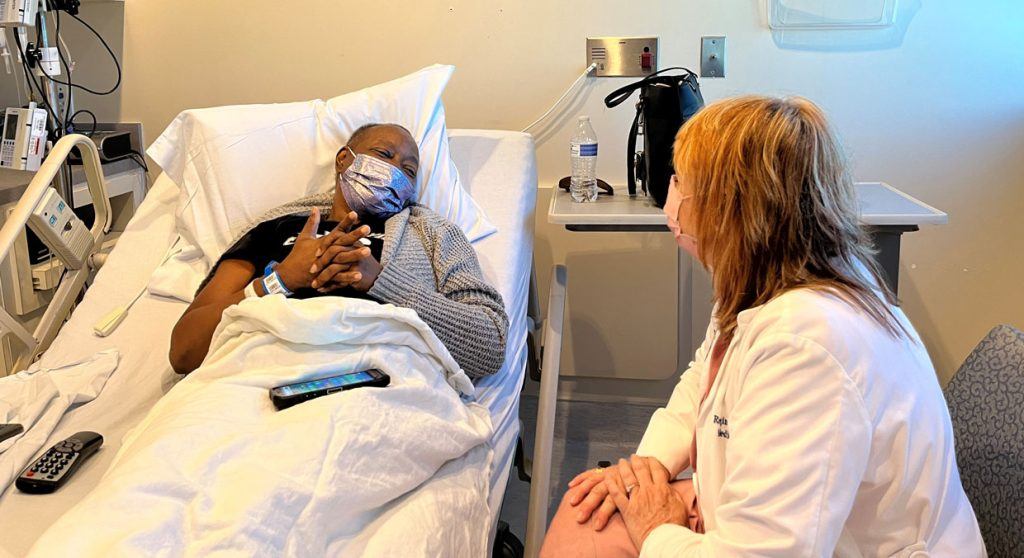Ella Washington’s battle with endometrial cancer inspires physicians, family, and other patients
June is Uterine Cancer Awareness Month, which focuses on spreading the word and educating the public about prevention, detection, and treatment. Uterine cancers are the most common gynecologic cancers, and the vast majority of uterine cancers consist of endometrial cancer, which occurs in the lining of the uterus. This is the inaugural year of the themed month, which was co-founded by Brian Slomovitz, MD (and the International Gynecologic Cancer Society), who felt there was a strong need to increase awareness about the disease.
In recognition, Mount Sinai would like to share Ella Washington’s medical journey following her endometrial cancer diagnosis.
Before receiving the news of her cancer diagnosis, Ella experienced postmenopausal bleeding — a rare occurrence for a woman in her 60s — and made an appointment with a gynecologist. The gynecologist conducted an endometrial biopsy and discovered cancer along the lining of her uterus.
Following her endometrial cancer diagnosis, Ella was referred to Dr. Slomovitz, Mount Sinai’s Director of Gynecologic Oncology. Dr. Slomovitz treats patients with ovarian cancer, cervical cancer, endometrial cancer, and complex gynecological conditions that require surgery.
Ultimately, Ella had to undergo a total hysterectomy, requiring the robot-assisted surgical removal of her uterus, tubes, ovaries, and cervix. Additionally, a sentinel lymph node biopsy was conducted to remove the nodes most likely involved in the development of her cancer.
After surgery, Ella received chemotherapy treatment because one of her lymph nodes tested positive. In this case, chemotherapy was used to prevent the cancer from returning.
“Ms. Washington did very well with her treatment and surgery — she’s a tough woman … the whole team here at Mount Sinai took excellent care of her … and the good news is she’s had a follow-up scan, which is actually negative, so it looks like the cancer is not spreading,” says Dr. Slomovitz.
Ella described the chemotherapy treatment as “very hard, but now that I crossed the hard part, I can look back and say, Lord, thank you for everybody that he put in my life.”
Ella is a mother and grandmother who continually perseveres while paving the way for others with endometrial cancer.
Regina Melchor, PsyD, a clinical psychologist at Mount Sinai, played a significant role in assisting Ella with her healing process and mental wellness. “I usually try to find the strengths in each patient and in Ella’s particular case, she has continued her workload and has been an amazing role model — not just for herself, but for her family and many of my patients,” says Dr. Melchor.
Ella continues to wonder where her cancer came from as someone who regularly visits her doctor and does not have a history of the disease in her family. Ella is an example of someone who was otherwise healthy and based on the findings, required chemotherapy, in addition to the surgery for endometrial cancer.
“We’re finding an increase in endometrial cancers … and needed to create a Uterine Cancer Awareness Month,” says Dr. Slomovitz. Women from all cultural backgrounds must receive cancer screenings as often as possible to detect early signs of uterine cancer. While there is no one-size-fits-all test to diagnose uterine cancer, several tests exist, which include a pelvic exam, hysteroscopy, ultrasound, and endometrial biopsy.
Ella’s remarkable journey is one filled with highs and lows. But according to her most recent medical scan, there is no evidence of cancer, thanks to Dr. Slomovitz and Mount Sinai’s medical staff.
Thank you for sharing your story, Ella; you are an inspiration to us all.


